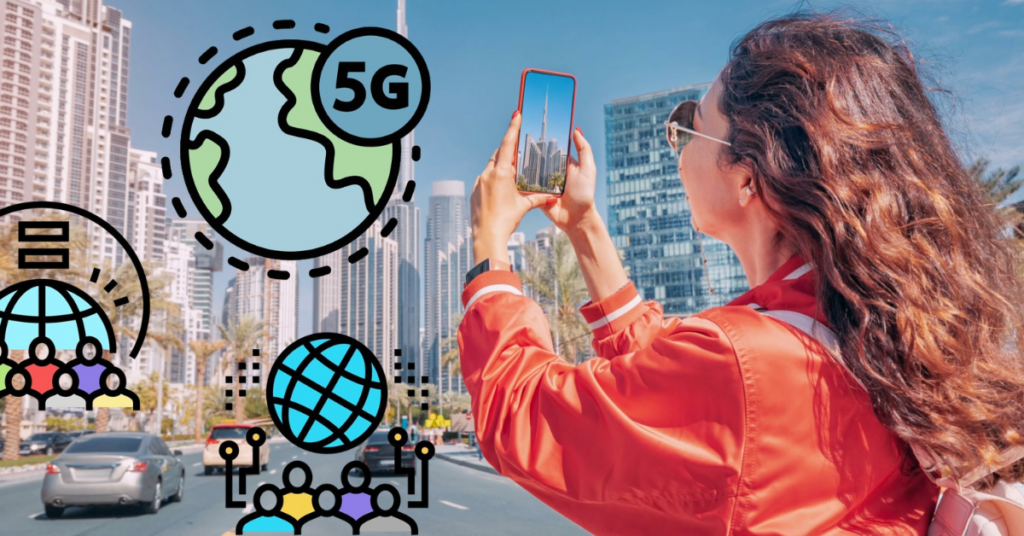RF Drive Test Software & 5G Network Tester along with Turismsektorn Resebranschen

5G networks is important for the evolution of digital services and the global economy over the next decade. As a wireless technology, 5G is set to support the creation of innovative solutions and new revenue streams. It will enable large-scale adoption of advancements in various sectors, including industry, advanced services, public administration, and potentially every economic sector. So, now let us see How Will 5G Transform the Tourism Industry along with Accurate LTE RF drive test tools in telecom & RF drive test software in telecom and Accurate 5g tester, 5G test equipment, 5g network tester tools in detail.
5G and Society
The fourth industrial revolution is set to revolutionize how we entertain ourselves, communicate, and interact with our environment. Numerous countries are already conducting 5G pilots and early deployments with the support of local governments.
5G is central to the digital future of any nation, making it essential to direct investment resources towards 5G infrastructure and development. Over the coming years, 5G networks will complement and enhance existing 4G technology, benefiting society and the economy through the smooth introduction of this new technology.
5G in Tourism
The digital transformation driven by advanced 5G networks will touch every part of the economy, bringing new ideas and applications. From smart cities and homes to autonomous vehicles, smart agriculture, and industrial sectors, 5G aims to interconnect digital devices and digitalize services, fundamentally changing our physical world.
Tourism is one sector poised to gain significantly from 5G technology’s innovation potential. Countries worldwide seek to enhance their tourism offerings by supporting advanced services for customers, ensuring growth and prosperity. For some nations, tourism is a core industry.
The speed, quality, and reliability of networks, along with the simultaneous operation and connectivity of hundreds of thousands of devices, will dramatically improve with 5G. The sector is expected to enter a new era, offering advanced services and capabilities currently unavailable or difficult to provide.
Examples of 5G Smart Tourism
For instance, they will streamline check-in times at airports or hotels. In-room smart services like lighting, temperature control, and virtual assistants with voice commands, already available in some major hotels, will expand massively due to 5G.
Human interaction, smart devices, augmented reality (AR), and virtual reality (VR) will converge. This will allow millions of visitors worldwide to enjoy remote sightseeing or virtual museum tours from the comfort of their homes.
Telecom providers are already planning the future of mobile communications by deploying 5G pilot networks in various cities. The telecom industry is investing heavily in new-generation networks, supporting innovative 5G solutions and applications in tourism by 2021 at the latest.
5G-Enabled Tourism Experience
With the deployment of new 5G networks, Internet of Things (IoT)-based applications will allow hotel chains to offer even more innovative and personalized services to their customers. Sensors will monitor and automatically adjust room power, lighting, and heating without human intervention.
Connectivity, AR, and VR will also play significant roles. They will have opportunities to engage with areas or attractions they visit, attend personalized events based on their preferences, either virtually or physically.
Moreover, 5G will enhance the quality of travel experiences. Passengers will receive more reliable, real-time information, simplifying their journeys to final destinations.
From AI to Robots
Customer service in the tourism industry will see improvements through the use of chatbots for quick responses to basic customer queries, especially during off-hours or holidays. A more advanced approach involves combining AI with robotics, such as Hilton and IBM’s Connie, the world’s first Watson-enabled robot hotel concierge.
Personalization is a top traveler request, and hotels are seeking ways to provide more personalized experiences for guests. AI and machine learning can make product suggestions and predict needs based on customer behavior. In-room technology can welcome guests by name, and hotels can offer automated travel suggestions based on user interests and preferences.
Instead of traditional keys and key cards, personalized identification methods like fingerprint or eye scans can improve security and access control. Check-in and check-out procedures can be expedited with facial recognition technology.
Smartphone Travel Experience
Smartphones are crucial in modern tourism, as they are the primary devices used by most customers. Mobile apps can facilitate hotel room reservations, restaurant bookings, room service requests, and spa appointments. Mobile applications combined with IoT technology can allow guests to control room functions, such as lighting and temperature, using their smartphones. Self-service features and mobile phone integration into hotel services, alongside beacon technology, can send specialized advertisements based on the user’s current location.
Conclusion
The tourism industry stands to gain immensely from the advancements brought about by 5G technology. With enhanced connectivity, personalized services, and innovative applications, 5G will revolutionize how we travel and experience new places. As 5G networks become more widespread, the tourism sector will continue to evolve, offering more enjoyable, accessible, and tailored experiences for travellers worldwide. Also read similar articles from here.







